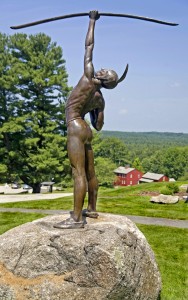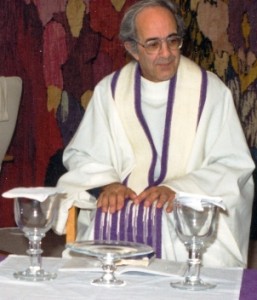Reading: Part I – Holding the Cup
Before we drink the cup, we must hold it!
July 17th Update: Just a quick reminder, especially for those that may be new to these book discussions. This is a very informal community and the questions below are merely intended to help us start reflecting, nothing more. The most important ideas to ponder are those that touched you in the reading. Our community will be blessed your by anything you choose to share or by your silent participation… Ray Glennon
Welcome back! Last week we shared our initial reflections on Jesus’ question “Can you drink the cup?” perhaps without really understanding the full implication. This week we explore what it means to hold the cup as the first step toward drinking.
Henri reminds us that to fruitfully drink the cup, “You have to know what you are drinking… Similarly, just living life is not enough. We must know what we are living… Half of living is reflecting on what is being lived… Reflection is essential for growth, development, and change. It is the unique power of the human person.”
This is a rich section with many meaningful ideas to ponder. The three included here are offered to help get us started. You may respond to these suggestions, share your thoughts on something that touched you, or follow along silently. Regardless of how you participate, you bless us with your presence in our community.
1. After noting that, like wine, there are countless varieties of lives, Henri says, “I have my own life to live… Many people can help me to live my life, but… I have to make my own decisions about how to live.” Referring to the sculpture of Pumunangwet (see photo), Henri writes: “He knows who he is… like that warrior, we must fully claim who we are and what we are called to live.” (p. 32-33)

Photo Courtesy of Marty Thornton
New England Impressions
(Click image for larger version)
Review your own life experience and consider: Do you know who you are and have you claimed it? What decisions have you made to live “what you are called to live” and how did you arrive at those decisions? Who are some of the people that have helped you along the way? If you are willing, share what you found.
2. Recalling his early years at L’Arche, Henri describes how he became deeply aware of his own sorrows through the lives of those at the heart of the community and their assistants; he then looks at the world and sees much suffering. Henri writes: “For each of us our sorrows are deeply personal. For all of us our sorrows are universal.” (p. 38)
Reflect on the sorrows you have encountered in your past and those that you are living with now. Do the same for the sorrows in our world today. Seek to see the hope that is ever present in our suffering. Prayerfully and confidently place those sorrows at the foot of the cross and offer them to Jesus and reflect on how you feel having done so. If you are comfortable, share your experience with our community.
3. Looking back on ten years in his L’Arche home, Henri fondly recalls how the people he lives with fill him with immense joy. He writes of the “joy of belonging, of being part of, of not being different.” Joining this realization to the “new language” he heard in the words of Jesus, Henri continues: “The cup of life is the cup of joy as much as it is the cup of sorrow. It is the cup in which sorrow and joys, sadness and gladness, mourning and dancing are never separated. If joys could not be where sorrows are, the cup of life would never be drinkable.” (p. 50-51)
Thoughtfully recall the joys and the sorrows in your life. Identify when your joy was hidden in your sorrow and reflect on how you moved from sorrow to joy. Remember when joy offered comfort as you confronted sorrow and suffering. Prayerfully recall when Jesus’ presence strengthened you, comforted you, and brought you joy. Share how the cup of joy is manifested in your life and, if you are willing, how your joy mixes with your sorrow so you can drink your cup of life.
There is so much to reflect on in this section and we look forward to hearing from many of you. May the Lord give you peace.
Ray


